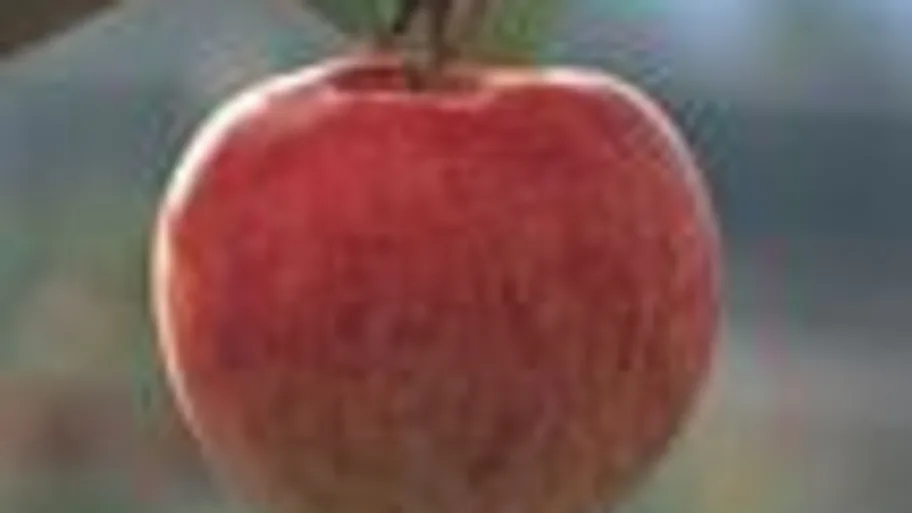
- Science News
- Frontiers news
- Barbara Burlingame – Unraveling the power of traditional food systems and sustainable diets
Barbara Burlingame – Unraveling the power of traditional food systems and sustainable diets
Author: Catherine Rawlinson
Dr Barbara Burlingame is a professor at Massey University, New Zealand. Her research predominantly focuses on nutrition science, and she is also involved in nutrition policy research at the global level. In relation to the United Nations Sustainable Development Goal 2: Zero Hunger, I spoke to Barbara about how her research over the years has contributed to nutrition policy and how this relates to providing sustainable diets for all.

Could you start by giving me an overview of your main areas of research?
“At the moment, my main areas cover food composition, biodiversity for food and nutrition, human nutrient requirements, dietary assessments, and sustainable diets. Within sustainable diets, a large area of my work involves traditional food knowledge systems of Indigenous Peoples.”
Some of your most recent work covers traditional food systems of Pacific Island countries. What can we learn from traditional systems to help sustain us for the future?
“We can learn so much about nutrition and environmental sustainability from the traditional food and knowledge systems of Indigenous Peoples. We are also documenting the tragedy of the erosion of these systems through multiple factors, chief of which are climate change and the ubiquitousness of diets high in ultra processed foods. Everyone is affected, but Small Island Developing States (SIDS) are particularly vulnerable. Nevertheless, there are communities with high adherence to their traditional diets, and this is where we gain insights from lived science as opposed to strictly empirical or experimental sciences. In the past, this kind of evidence may have been rejected from policy processes as ‘weak’ anecdotal evidence. However, now it’s being valued as legitimate evidence, and is finding its way into the policy processes. We are working on redefining the hierarchy of strength of evidence for inclusion in all evidence-dependent policies and recommendations.”
So, learning from real human experience?
“Yes. Consider that these knowledge systems are based on lived science of whole communities over centuries, if not millennia. A randomized control trial, which is widely regarded as the ‘gold standard’ of evidence, has a time scale measured in days, weeks, or months, with comparatively few subjects.”
Moving back to you and your career, how would you say that the focus of your research has evolved over time?
“My career has spanned more than 30 years so far, and although I consider myself a nutrition scientist, my work is not strictly confined to nutrition. My degrees are in nutrition science and environmental toxicology, which, even as an undergraduate, I’ve felt was an ideal combination.
“One of my historical heroes in the field of nutrition is a woman named Ellen Swallow. She was the first female graduate from Massachusetts Institute of Technology in the late 1800s. She’s credited with bringing the term ‘ecology’ into the English language and the very first nutrition course at MIT, which she started, was called ‘human ecology’. The link between nutrition and environment has always been obvious to me, but we’ve lost that connection between the time of Ellen Swallow and up until very recently.
“Food composition was my main area of research for many years. I started in trace element research in nutrition labs at California, and then in Singapore looking at toxicological components, mainly heavy metals, in Chinese medicinal materials. From there, I moved into a comprehensive lab setting in New Zealand looking at nutrients, bioactive non-nutrients, contaminants – basically anything that could be measured in food! And this is what I worked on for many years.
“I still feel that food composition is fundamental. It underpins everything we study in nutrition directly or indirectly. For example, in order to evaluate a dietary assessment, you need composition data to address deficiencies, excesses, or imbalances. It isn’t the most exciting area of research, but someone needs to do it. I have always made the analogy that food composition research is like people writing the dictionary so everybody else can write the best seller. It’s fundamentally important.
“The focus of my work has now changed. While previously food composition was my focus, it always included biodiversity as an aspect. So, looking at the nutrient compositional differences, not just the level of the food or species, but at the level of the variety or the cultivar and there are surprising compositional differences.
“So, my work shifted to biodiversity for food nutrition, and went from bench research to working with the Food and Agriculture Organization of the United Nations. Here, my work involved the provision of scientific advice for policy processes and standard-setting bodies. The research element here includes policy analysis and evidence-based policy recommendations.”
In both your current work in policy and also your previous work in food composition, how would you say that your work has aligned with Sustainable Development Goal 2: Zero Hunger?
“It aligns completely. Pre-SDGs we were in the era of the MDGs, the Millennium Development Goals, and they evolved into the Sustainable Development Goals (SDGs). In the MDGs, for example, zero hunger was tied to eliminating poverty as one goal. It was believed that poverty alleviation would solve the hunger problems. Uncoupling poverty from hunger when we moved to the SDGs was very important, and this was fiercely debated.
“Economists wanted to continue linking poverty with hunger, whereas nutritionists, and even most of the agriculture sector, wanted to uncouple it and, ultimately, we succeeded in uncoupling it. When poverty and hunger were combined under one goal, areas like biodiversity for food nutrition and sustainable diets did not get the attention they needed.
“SDG 2 now perfectly aligns with all work on sustainable diets, biodiversity for food nutrition, traditional food systems of Indigenous Peoples, respect for ecosystems, conservation of genetic resources, all those aspects.
“The work of my group influenced the targets within the SDGs. We had a hierarchy for inputs into the SDGs, and then a couple of people actually went to Rio de Janeiro and negotiated them. So, we were involved in impressing the importance of these issues upon the people who were the ultimate negotiators.”
Alongside SDG 2 we also have SDG 5 – Achieve gender equality and empower all women and girls. Have you faced any particular challenges in your role and as a woman in your field?
“I’ve been fortunate for much of my career. I don’t think I ever experienced institutional challenges as a woman in all the places where I’ve worked. In the multicultural environment of the UN system, I did face challenges, as did several women I mentored who felt like they were being discriminated against. But I don’t think it was embedded in the institutional culture; I think it was instead related to individuals and their cultural conditioning.
“When I would take up the baton to mediate the situation, that’s when I realized that there weren’t effective systems in place to deal with these things which were clearly violations. What was lacking in institutional culture was any sensible remedies for dealing with these challenges.
“I feel very privileged in many ways that I never personally experienced workplace inequality, and I have never been disadvantaged or discouraged in my career because of gender.”
Do you have any advice for early career female researchers in your field?
“There are a couple of things that I will always recommend to young scientists and the first one is to be true to the science.
“There are a lot of pressures coming from commercial and economic interests for scientists to present certain views in order to gain something professionally. It is never a good idea to compromise your scientific moral high ground to accommodate these other interests. Even if it means not getting grants.
“The other advice I would give relates to the two major camps in science; the holistic versus the reductionistic. People need to be mindful that one without the other is going to compromise the science. So, coming from food composition, which is reductionist and moving to sustainable diets, which is holistic, I know the value of both. It’s very hard to have a compelling holistic position, without some reductionist input. For example, sustainable diets require reductionist science for full understanding. The reductionist science from food composition has its ultimate use in supporting sustainable diets.
“I think this is important across the whole breadth of science.”
What would you consider your proudest professional achievement?
“Probably my work in bringing some major issues into the mainstream of nutrition. Biodiversity has always been a focus for me, whether I was looking at the nutrient composition of different commercial cultivars, or the composition of neglected, under-utilized, or wild species of food. It’s always been there but it was never part of the mainstream thinking of nutrition.
“In fact, when I worked on the New Zealand food composition database in the 1990s, there was a lot of criticism from dieticians who said, for example, we do not want the composition of 13 varieties of apple, we want the data on just apples. There was no appreciation of the differences among varieties of the same species, even though we demonstrated very nutritionally significant differences. Finally, now biodiversity for food nutrition is mainstream and we see it presented in the scientific literature, and integrated into all intergovernmental conferences.
“Additionally, in bringing initiatives surrounding sustainability and traditional knowledge into the mainstream, we have faced a lot of resistance. For example, some agri-food industries have always favored the term a ‘healthy diet’, instead of a ‘sustainable diet’. ‘Healthy’ can be achieved by adding a few isolated nutrients, or by reducing fat, sugar, or salt in ultra processed food. Sustainable diets require sustainable food systems, and are healthy by definition. Healthy foods and diets, by conventional definitions, need not have any relationship to sustainable food systems. I mention the resistance to the term ‘sustainable diets’, but I should note, too, that there is a lot of food industry resistance to another term I am deliberately using in this interview, and that is ‘ultra processed foods’. These terms and concepts are now fairly widely used, yet pushback continues, including in the scientific literature.”

Frontiers is a signatory of the United Nations Publishers COMPACT. This interview has been published in support of United Nations Sustainable Goal 2: Zero Hunger and United Nations Sustainable Goal 5: Achieve gender equality and empower all women and girls.






